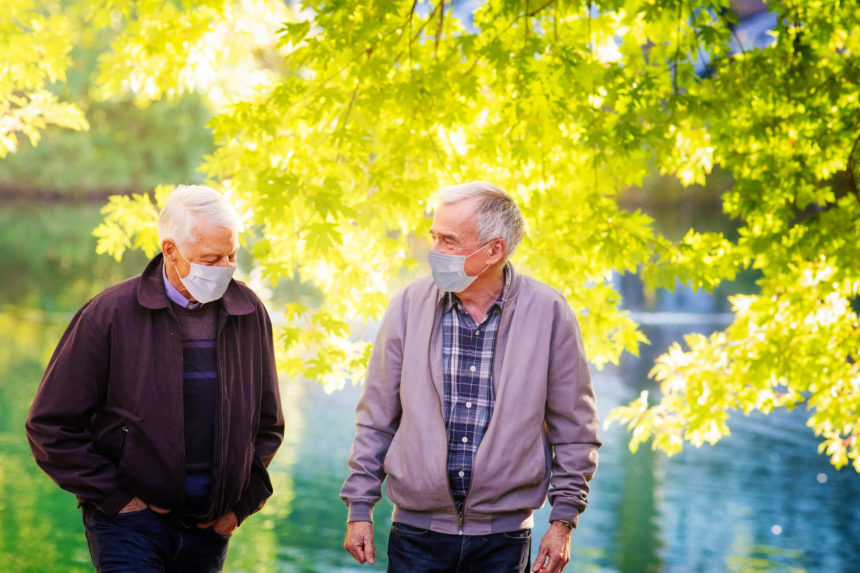
During the pandemic, adults aged 65 or more years have fared better mentally and emotionally and as far as general quality of life than their counterparts aged 50 to 64, according to newly released results of a coronavirus and social isolation-themed survey conducted by the Associated Press–NORC Center for Public Affairs Research.
Sixty-three percent of respondents in the older group reported having an excellent / very good quality of life, compared with 51% of those aged 50 to 64. Also, 67% of those aged 65 or older reported excellent / very good mental or emotional health compared with those aged 50 to 64 (54%).
Members of the 65+ age group also were more likely than members of the younger group to say that they rarely or never felt isolated or lacked companionship recently. Eleven percent of those aged 65+ said they often or very often felt a lack of companionship, and 22% said they sometimes did. That compares with 16% of those aged 50 to 64 often or very often feeling a lack of companionship, and 26% sometimes feeling it.
Regarding isolation, 10% of those aged 65+ said they often or very often felt isolated from others, and 19% said they sometimes did. That compares with 14% of those aged 50 to 64 reported feeling isolated often or very often, and 26% saying they sometimes felt isolated.
To cope with the isolation, overall, participants said they have taken to video chat and social media in place of visiting friends and family, doing volunteer work and attending religious services. They also are using telehealth, with 63% of all respondents reporting using the technology at some point during the pandemic, up from 56% who reported using it as of March.
Sarita A. Mohanty, president and CEO of The SCAN Foundation, said that telehealth remains a bright spot in the continuing pandemic. But fewer of those aged 65+ expect to continue using telehealth after the pandemic ends compared with those aged 50 to 64.
Thirteen percent of those aged 65 or more said that it is extremely or very likely that they will continue to use telehealth after the pandemic, and 27% said it is somewhat likely. This compares with 23% of those aged 50 to 64 who said it is extremely or very likely that they will continue using telehealth after the pandemic and 37% who said it is somewhat likely.
The study, funded by the SCAN Foundation, was conducted by the Associated Press–NORC Center for Public Affairs Research and included interviews with 1,015 adults aged at least 50 years between Aug. 20 and 23. Participants were not necessarily residents of senior living communities. Seventy-eight percent of respondents reported receiving at least one dose of a COVID-19 vaccine.




